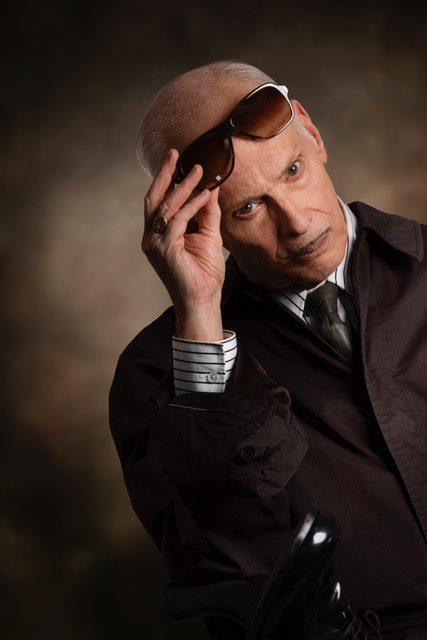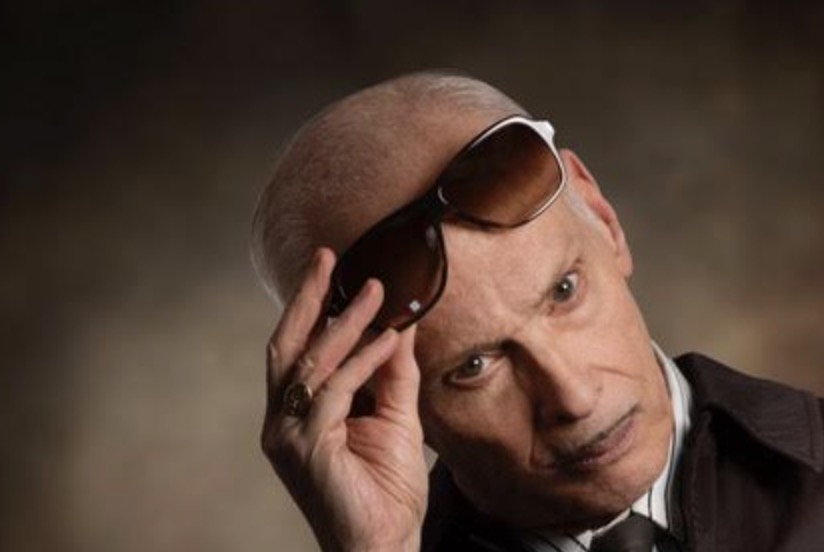Filmmaker, author, artist, and cultural icon John Waters has spent more than five decades daring people to look at what they usually turn away from. Known for cult classics like Pink Flamingos, Polyester, and Hairspray, Waters made a career out of unsettling, challenging, and, ultimately, delighting audiences. On May 9, he brings his latest one-man show, The Naked Truth, to the Avalon Theatre in Easton.
 As Waters describes it, the show is part stand-up, part cultural commentary, part confessional — and entirely new. “I rewrite it completely once every year,” he said. “It’s about everything — politics, fashion, movies, music, how to get on your parents’ nerves. All sorts of things.”
As Waters describes it, the show is part stand-up, part cultural commentary, part confessional — and entirely new. “I rewrite it completely once every year,” he said. “It’s about everything — politics, fashion, movies, music, how to get on your parents’ nerves. All sorts of things.”
This year’s version salutes the “gender guerrilla generation” and the rapidly changing landscape of identity and sexuality. “It’s amazing how things have changed so quickly; it even startles me,” he said. “There is a whole new world out there. At the end of a date, you used to ask for a good night kiss. Now I read the young people strangle each other.”
Even for someone who made a name by pushing boundaries, the pace of social change today can feel dizzying. “There’s a whole new set of rules — and no trigger warnings anymore, because who are you going complain to?” he said.
But Waters made clear that The Naked Truth isn’t about shock for shock’s sake. “It’s easy to shock,” he said. “It’s much harder to surprise people and make them laugh. That’s what I do. All comedy is political. It’s protection. It’s how you fight back. It’s how you position yourself. Even fashion is political.” He added, “I’m not self-righteous. I make fun of the rules I live by.”
For some ticket holders at the Avalon show, there will also be a special stick-around for a post-show opportunity to take a selfie with the star and a “group therapy” session. As Waters explains, the therapy will be precisely what you might expect — and nothing like the real thing. “We have no shame here. We share different things,” he said. “Things they might not have been able to say in a regular Q&A. There are different neuroses and attractions, but they figure if anybody can understand, it’s me. And they’re generally right.”
When asked, Waters admitted he’s never attended real group therapy. “I always thought they’d tell others what I told them,” he said. “At my show’s group therapy, nothing is off limits. We say things you’re not supposed to say.” He added, “I’m the psychiatrist. I’m the defense lawyer. They’re the patients. They’re the filthiest people alive, not me.”
That perspective fits Waters’ lifelong fascination with outsiders — although, he said, even that definition has shifted. “I’m through with being an outsider. I want to be an insider now,” he said. “Everybody wants to be an outsider today. Instead, I want to screw things up from the inside — in a positive way.”
It’s an unexpected, if fitting, turn for someone whose early work was once banned, condemned, and reviled. Today, Waters is celebrated by some institutions that once shunned him. “I’m so respectable, I could puke,” he said. “Who would have ever thought the Academy Award museum would give me a 12-room show? Not to mention all these awards I’m getting — the Writers Guild Award, an editing award. It’s amazing to me.”
It’s so amazing that Waters said he’s now addicted to receiving awards. “I miss the day when I was condemned by the Catholic Church, and they gave me all the bad reviews that I used in the ads,” he said. “Same movies, but people just take them a different way.”
Through all the shifts in reputation and audience, Waters said the core of his creative life remains the same. “I’ve written all my movies. I write my stand-up shows. I write books. I photograph,” he said. “Basically, though, I’m a writer. So, every day, Monday to Friday, I get up, think up weird things, and write between 8 am and noon. In the afternoon, I sell it. That’s what I do for a living.”
His latest novel, Liarmouth, came out of that same discipline. “I’m always in airports because I tour all the time,” he said. “So I wrote about a woman who steals suitcases. No, I never saw it happen — but it’s easy to do. And if you get caught, you pretend you picked up the wrong one.”
As for new undertakings, Waters says he constantly collects new material, jotting down ideas and observations in what he calls different “cubby holes” for future projects. “I’m never bored. I don’t understand how anybody can be bored. Just go watch people. There’s no reason to be bored. You only get one life. Pay attention.”
That attitude extends to how he stays plugged into contemporary culture. “I have youth spies that tell me new stuff that’s going on,” he said. “I hate people my age who say, ‘It was much better back in the day.’ No — it wasn’t. You’re just an old fart. They’re having just as much fun now. You’ve got to figure out what that fun is.”
Waters speaks about aging with the same defiance he once reserved for battling censors and critics. “Old chickens make good soup,” he said. (I had to remove the comment that followed this, but in true Waters fashion, you can probably guess it wasn’t Hallmark card material.)
Then again, if material ever runs short, Waters joked, there’s always hospice humor.
“Old queens, wrinkle queens — we’re all still telling stories.”
Asked if Baltimore continues to be a muse even though his fame has grown beyond his native home, Waters said. “Baltimore’s still my favorite city. It’s still the coolest city because it’s cheap — you can still have Bohemia there,” he said. “I think I give Baltimore pride. We humanize the city. We make it popular, he said, crediting other Baltimore storytellers, from Barry Levinson to The Wire creators, with continuing to frame the city through the lives of its citizens. “We all made it about the peculiar people,” he said. “That’s why people connect to it.”
With a body of work that has been dissected by critics, celebrated by institutions, and embraced by younger generations, I asked if he ever felt misunderstood. “No,” he said. I’ve been understood right from the beginning,” And as for misgivings, he said there was only one. “The only regret I have is smoking. I haven’t had a cigarette in 8,149 days. I write it down every day.”
This ability to track regrets while continuing to push limits is at the core of who Waters is. Asked if there was anything he turns away from, he didn’t hesitate. “Sure — racism, stupidity, homophobia, transphobia,” he said. “But at the same time, I try to figure out what causes that and make that person laugh so they’ll listen and maybe change their mind.”
For first-timers attending The Naked Truth, Waters offered a simple piece of advice:
“Don’t call the police,” he said. Still, he said most audiences know exactly what they’re getting into. “I do ask, ‘Are you on a first date? Good luck.’ It will either resolve in marriage, or it will be the worst date ever.” For me 45 years ago, it resolved in marriage. Thanks, John.
John Waters brings The Naked Truth to the Avalon Theatre on May 9. Tickets are available at avalonfoundation.org. And for those attending the post-show group therapy passes, bring your camera– and maybe an issue or two.



Write a Letter to the Editor on this Article
We encourage readers to offer their point of view on this article by submitting the following form. Editing is sometimes necessary and is done at the discretion of the editorial staff.